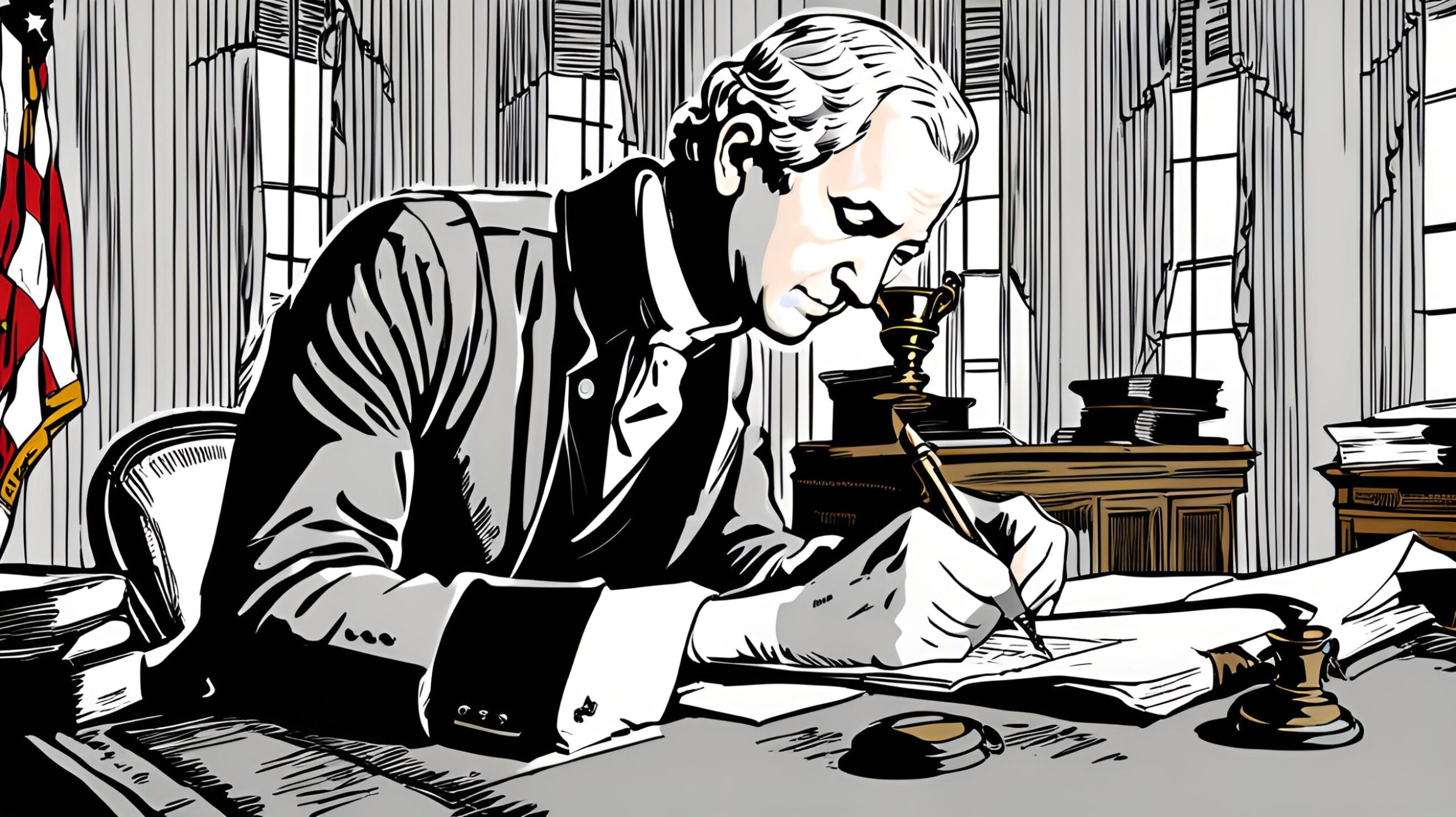Flashback to September 13
American History

1949
US President Harry S. Truman signs the National Security Bill, streamlining the defense agencies of the United States
Read moreOn August 10th, 1949, a landmark event unfolded in the United States when the 33rd President, Harry S. Truman, signed into law the National Security Bill, fundamentally altering the national defense framework of the country. This defining moment dismantled the National Military Establishment and gave birth to the United States Department of Defense in its stead. This profound change streamlined the various defense agencies operating within the United States government, marking a pivotal point in the history of U.S. national security.
The signing of the National Security Bill under President Truman was a manifestation of the U.S. government’s continual efforts to improve the nation’s security structure. Largely a result of lessons learned during World War II, the bill was designed streamlining the coordination and management of the military, thereby improving defense efficiency and readiness.
The National Military Establishment, despite being a well-regarded operation, had its limitations. The establishment’s hierarchical structure and independent yet overlapping roles of the army, navy, and air force was seen as impeding efficient cooperation and coordination. These concerns were increasingly pronounced given the rising global pressures during the Cold War era.
Addressing this issue, President Truman signed the National Security Bill on the summer day of August 10, 1949. This moment has since been etched into the annals of U.S. history not just as a legislative action, but as a significant turning point in the optimization of the American defense structure.
Following this pivotal signing, the United States Department of Defense was officially created, replacing the National Military Establishment. The Department of Defense was envisioned as a more unified structure that facilitated greater cooperation between the once disparate arms of the military. This modernized and more efficient framework allowed for improved, quick-response decision-making and bolstered the preparation and readiness for threats to national security.
This transition bore important operational changes. The Secretary of Defense, a position awarded heightened authority following this bill, became responsible for a more unified advisory and execution body. This unified command structure greatly enhanced the efficiency, agility, and readiness of the country’s armed forces, particularly during times of crisis.
Moreover, the new Department of Defense encouraged more effective use of resources. By streamlining the decision-making processes and establishing a unified command structure, resources could be allocated and deployed faster and more rationally. This advanced resource allocation, in turn, significantly improved the Department of Defense’s ability to react swiftly and decisively to any threats or potential conflicts.
The impacts of President Truman’s signing of the National Security Bill are still felt today. The creation of the United States Department of Defense ensured that the military could operate in a more streamlined and efficient way. This restructuring has not only provided the U.S. with a robust defense mechanism, but has also shaped the path for other nations seeking to optimize their military structures.
The day Harry S. Truman signed the National Security Bill, replacing the National Military Establishment with the United States Department of Defense, is indeed a watershed moment in the history of U.S. defense policy. The resulting streamlined network of defense agencies continues to provide security for American citizens and influence other nations worldwide.
Indeed, August 10, 1949, stands as a testament to the United States’ ongoing commitment to defend its citizens, adapt to new challenges, and lead with innovation in defense strategy. This unprecedented move has forever shaped the U.S. defense infrastructure, and it continues to impact global defense strategies and policies well into the 21st century.
We strive for accuracy. If you see something that doesn't look right, click here to contact us!
Sponsored Content

First loan to the…
On September 13, 1789,…

The US Assault Weapons…
The landmark U.S. Assault…

Margaret Chase Smith is…
"Pioneering a path for…

